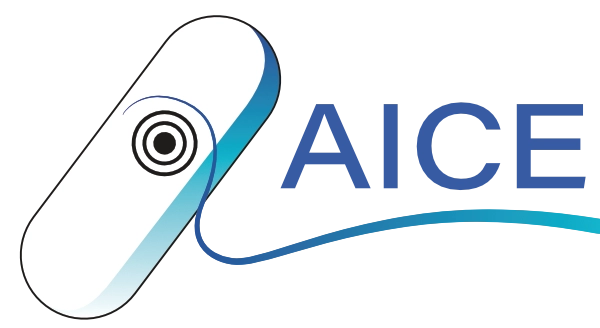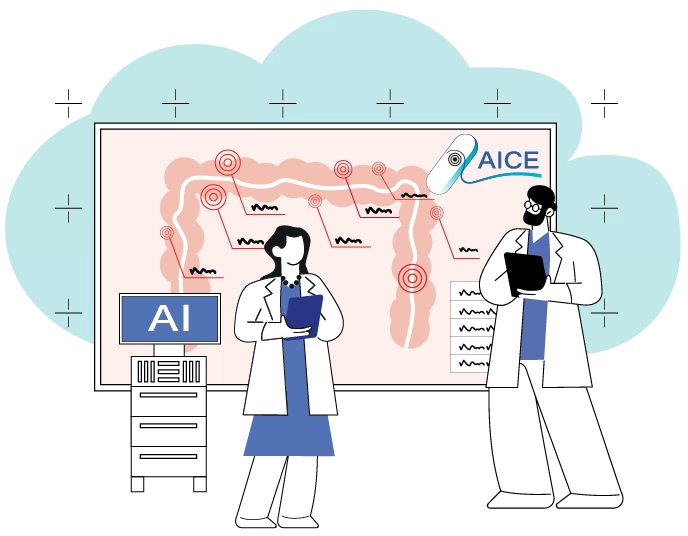with Professor Angus Watson (Chair of Surgery at University of Aberdeen and Honorary Consultant Surgeon at Raigmore Hospital Inverness)
This blog invites you to join us on a journey of discovery, as we unravel the transformative potential of AICE in reshaping the landscape of patient experiences. In this insightful journey, we are privileged to delve into the wisdom of none other than Professor Angus Watson – an eminent authority, a pivotal partner in the AICE project, and the visionary force propelling the successful ScotCap initiative.
A Visionary Transformation: Speed, Empowerment, and Patient Well-being
Angus sets the tone by emphasising the urgency inherent in colon cancer diagnostics. “Time is of the essence,” he stresses, as he reflects on the daunting waiting period that patients often endure post-screening. This period of uncertainty casts a cloud of apprehension and unease, affecting patients’ mental and emotional well-being. As Angus asserts, “I think AICE and the aspirations for AICE in AI reporting will be a game changer, significantly reducing waiting times.” He points out that the current timeline of three to five days for receiving a colon capsule endoscopy report after completing the test will undergo a revolutionary alteration. “AI will give us the ability to almost provide the diagnostic as soon as the test is finished.” The crucial factor here is the instant analysis of images, allowing for the quick generation of a report. Not only does this pivot benefit patients with faster results, but it will benefit clinicians in their decision making. Indeed Angus envisages a scenario where images are seamlessly integrated with diagnostic tools in real time. He states “You can actually see the next step of having AI happening in real time. So that if you’ve got images being fed to a diagnostic tool as they are taken, that’s incredibly powerful as you’ve got real time diagnosis happening as the capsule passes through the gastrointestinal tract.”
Embracing a Safer Future: AI and Medical Expertise
In delving into the possibilities that AI brings to lead the way in improving the patient experience, Angus paints a picture of safety and precision. He notes that AI introduces a “much needed safety in the reporting process,” mitigating the risks associated with human error. Through AI integration, the potential for inconsistencies or inaccuracies is dramatically reduced. Furthermore, Angus sheds light on AI’s capacity as a really robust way of consistently reporting images accurately without fatigue, providing a reliable approach. In his words, AI propels the imaging process into a realm that transcends human limitations and aligns more with an industrial-grade consistency, thereby introducing reduced error and a greater level of safety that was once unforeseen. Angus stressed the indispensable role of human collaboration in AI-generated reports. He elucidates that, for patient reassurance, “a human always signs off on the report that AI might generate.” This symbiotic interplay of human expertise and AI brings about a synergy that will deliver patient confidence in the process and ensures a robust diagnosis.
Closing Thoughts: A Transformative Journey
As we bring this enlightening conversation with Angus to a close, it is clear that the patient journey with AICE addresses the need for fast test results, safer and more robust reporting and diagnosis, and a vision that places patients front and centre in healthcare innovation. In the spirt of AICE’s patient-centric ethos, Angus leaves us with a final thought: “Ultimately, AICE is about making a tangible difference in patients’ lives. It’s about offering them not just results, but confidence in their health journey. With AICE it’s important to note that it’s not just about technology, it’s about people and improving their care and health outcomes.”




